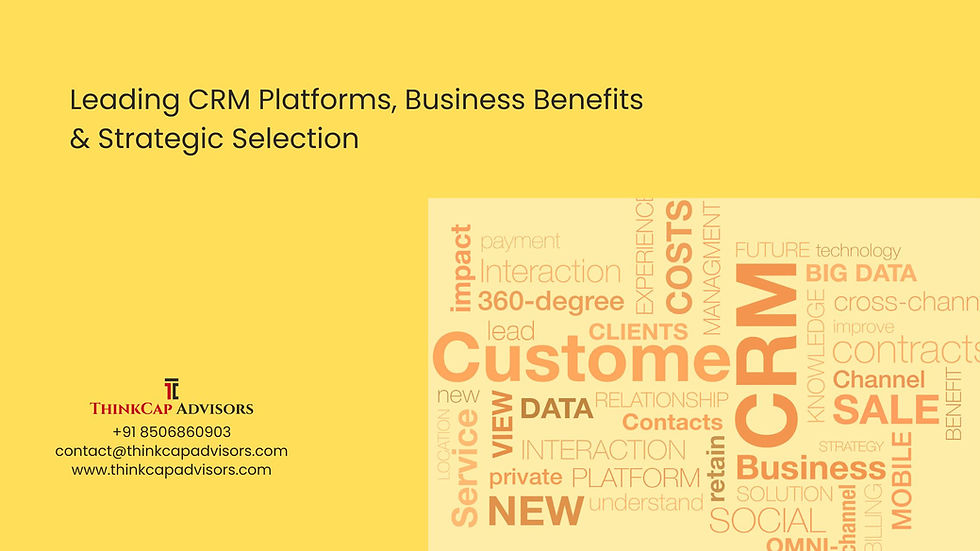Do You Use Your CRM for Lead Nurturing
- Apr 9, 2023
- 3 min read
Updated: Oct 3, 2023

When we work with clients on CRM consulting projects, often the discussion starts around lead management, lead allocation, sales pipeline and reporting. Chats are limited to capturing leads from multiple sources and seamless allocation. Tracking of leads is limited to capturing the lead source and the campaign from which it originated. There is hardly any discussion on lead nurturing. As a CRM consulting services company, we believe lead nurturing (if done well) can vastly improve the lead-to-conversion ratio.
So, what is lead nurturing
As per Gartner – Lead nurturing is an increasingly automated approach used to help potential leads progress through the sales funnel and their buying journey. Lead nurturing is essential to both engaging potential buyers and providing qualified prospects for sales.
A CRM software operationalizes the lead nurturing process. From customer segmentation to campaign launch & lead scoring to performance tracking. While defining CRM requirements, an organization should define features for lead nurturing and make it part of their product evaluation.
Also, the CRM suite and features required might differ based on the company type (B2B/B2C). A B2B company might need features of segmentation, email marketing, & tracking of content downloads and landing pages. A B2C company might need more. E.g., push notifications, tracking app downloads, in-app notifications etc. The CRM team and the CRM advisory services partner should be aware of these requirements to make the right CRM selection.

In light of the above context. Let’s look at how a CRM can operationalize the lead nurturing process:
Communication segments – CRM allows the creation of segments. This means your communication, leads & customer database can be grouped into common attributes like industry, company size, user persona etc. This helps in targeted communication and improves the engagement rate. A CRM software can create groups and send out targeted communications.
Tracking the buyer journey – Consumer-driven purchases are becoming a reality, so tracking buyer journeys and launching campaigns are essential. An individual who has visited your landing page, downloaded a case study, or visited the pricing page, has greater potential to convert than somebody who has filled up the query form. A CRM can track this behaviour and send out custom campaigns across channels.
Lead scoring – Based on user engagement, it is critical to do lead scoring. Lead scoring allows the categorization of leads (hot, warm, cold) and brings greater focus to sales engagement and communication. A CRM can auto-calculate the lead score based on user engagement and bucket leads into the mentioned attributes. Furthermore, it can trigger custom campaigns for each category and alert the sales team.
Track, measure, and optimize – Lead nurturing strategies should be measured and tweaked to keep them effective. CRM software helps to track engagement, lead qualification, and conversion rates. Reports and dashboards are designed to measure the success of each step in the buyer/user journey.
The process of nurturing leads is not as simple as it sounds. When building your strategy keep realistic goals. Be ready for changes and process realignment as it takes time to achieve results. CRMs should be agile enough to adapt to these changes quickly.
Due to feature limitations, pricing, etc., it is not always possible to achieve everything with a single CRM application. The suite might be completed by a combination of business applications. Consequently, CRM selection becomes a very important step, which is why a CRM consulting services company could be of great help.




Comments